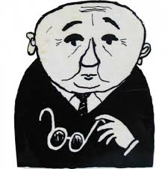Toll-Free US & Canada 24/7:
1-770-659-7014
As a precautionary health measure for our support specialists in light of COVID-19, our phone support option will be temporarily unavailable. However, orders are processed online as usual and communication via live chat, messenger, and email is conducted 24/7. There are no delays with processing new and current orders.
Self education
 With luck, summer is now but a memory, fading fast. Whether freshman, senior, graduate, or post-doc, if a college campus is your working home, to every worry there is a season. Campuses have their own particular seasons it seems, ones that have changed remarkably little over the millennia, especially if you are in the humanities. (Those eternal verities seem more resistant to time than computer science.) Whenever Fall rolls around, we ancient Greeks here at BookwormLab like to take out a little-known novel — almost a novella — entitled Pnin, by a well-known author, Vladimir Nabokov. Published in 1957, it contains the best description of a new school year that we know of. We’ve decided to give you a taste of it in hopes that it will intrigue you enough to read the entire book, which may very well be The Great American College Campus Novel:
The 1954 Fall Term had begun. Again the marble neck of a homely Venus in the vestibule in Humanities Hall received the vermillion imprint, in applied lipstick, of a mimicked kiss. Again the Waindell Recorder discussed the Parking Problem. Again in the margins of library books earnest freshmen inscribed such helpful glosses as “Descriptions of nature,” or “Irony”; and in a pretty edition of Mallarmé’s poem’s an especially able scholiast had already underlined in violet ink the difficult word oiseaux and scrawled across it “birds” . . .
We can see that the narrator is not a student. (He is also an unreliable narrator, a known type of fictional device with its own Wikipedia article.) Reading on, we get a hint of the narrator’s overall attitude:
And still the college creaked on. Word plastics like “conflict” and “pattern” were still in vogue. As usual, sterile instructors successfully endeavored to “produce” by reviewing the books of more fertile colleagues . . .
Sound at all familiar? No? Then you are probably an undergraduate. The academic worldview presented in Pnin is partially that of the protagonist, an instructor named Timofey Pnin, an old-school Russian émigré in his fifties who, after barely escaping Stalin’s Russia and then Hitler’s Europe, washes ashore alone at an untenured teaching post at a small New England college. That campus, like all campuses, contains a variety of separate universes or universities that — usually — meet only formally in certain controlled circumstances. Pnin, a born and life-long scholar, had long ceased to notice the existence of students on the campus, in the corridors, in the library — anywhere, in brief, save in functional classroom concentrations . . . now, except for a girl’s comely nape here and there, he saw nobody in the Reading Room.
Much of this separation is simply that of age and youth. When Pnin visits friends one summer at their house in the New England countryside, the children of his hosts and other guests seemed to live at The Pines on a physical and mental plane entirely different from that of their parents: now and then passing from their own level to ours through a kind of interdimensional shimmer . . .
Here at BookwormLab, we are at home in all the academic time-spaces that your own campus has within its terrestrial or cyber-dimensional borders. From freshman to senior to graduate to post-doc, our multi-generational incantations open all doors of perception, all year round. Whether it is research, writing, editing, translating, or tutoring, BookwormLab.com is there 24/7.
With luck, summer is now but a memory, fading fast. Whether freshman, senior, graduate, or post-doc, if a college campus is your working home, to every worry there is a season. Campuses have their own particular seasons it seems, ones that have changed remarkably little over the millennia, especially if you are in the humanities. (Those eternal verities seem more resistant to time than computer science.) Whenever Fall rolls around, we ancient Greeks here at BookwormLab like to take out a little-known novel — almost a novella — entitled Pnin, by a well-known author, Vladimir Nabokov. Published in 1957, it contains the best description of a new school year that we know of. We’ve decided to give you a taste of it in hopes that it will intrigue you enough to read the entire book, which may very well be The Great American College Campus Novel:
The 1954 Fall Term had begun. Again the marble neck of a homely Venus in the vestibule in Humanities Hall received the vermillion imprint, in applied lipstick, of a mimicked kiss. Again the Waindell Recorder discussed the Parking Problem. Again in the margins of library books earnest freshmen inscribed such helpful glosses as “Descriptions of nature,” or “Irony”; and in a pretty edition of Mallarmé’s poem’s an especially able scholiast had already underlined in violet ink the difficult word oiseaux and scrawled across it “birds” . . .
We can see that the narrator is not a student. (He is also an unreliable narrator, a known type of fictional device with its own Wikipedia article.) Reading on, we get a hint of the narrator’s overall attitude:
And still the college creaked on. Word plastics like “conflict” and “pattern” were still in vogue. As usual, sterile instructors successfully endeavored to “produce” by reviewing the books of more fertile colleagues . . .
Sound at all familiar? No? Then you are probably an undergraduate. The academic worldview presented in Pnin is partially that of the protagonist, an instructor named Timofey Pnin, an old-school Russian émigré in his fifties who, after barely escaping Stalin’s Russia and then Hitler’s Europe, washes ashore alone at an untenured teaching post at a small New England college. That campus, like all campuses, contains a variety of separate universes or universities that — usually — meet only formally in certain controlled circumstances. Pnin, a born and life-long scholar, had long ceased to notice the existence of students on the campus, in the corridors, in the library — anywhere, in brief, save in functional classroom concentrations . . . now, except for a girl’s comely nape here and there, he saw nobody in the Reading Room.
Much of this separation is simply that of age and youth. When Pnin visits friends one summer at their house in the New England countryside, the children of his hosts and other guests seemed to live at The Pines on a physical and mental plane entirely different from that of their parents: now and then passing from their own level to ours through a kind of interdimensional shimmer . . .
Here at BookwormLab, we are at home in all the academic time-spaces that your own campus has within its terrestrial or cyber-dimensional borders. From freshman to senior to graduate to post-doc, our multi-generational incantations open all doors of perception, all year round. Whether it is research, writing, editing, translating, or tutoring, BookwormLab.com is there 24/7.
Pnin Was Here!
 With luck, summer is now but a memory, fading fast. Whether freshman, senior, graduate, or post-doc, if a college campus is your working home, to every worry there is a season. Campuses have their own particular seasons it seems, ones that have changed remarkably little over the millennia, especially if you are in the humanities. (Those eternal verities seem more resistant to time than computer science.) Whenever Fall rolls around, we ancient Greeks here at BookwormLab like to take out a little-known novel — almost a novella — entitled Pnin, by a well-known author, Vladimir Nabokov. Published in 1957, it contains the best description of a new school year that we know of. We’ve decided to give you a taste of it in hopes that it will intrigue you enough to read the entire book, which may very well be The Great American College Campus Novel:
The 1954 Fall Term had begun. Again the marble neck of a homely Venus in the vestibule in Humanities Hall received the vermillion imprint, in applied lipstick, of a mimicked kiss. Again the Waindell Recorder discussed the Parking Problem. Again in the margins of library books earnest freshmen inscribed such helpful glosses as “Descriptions of nature,” or “Irony”; and in a pretty edition of Mallarmé’s poem’s an especially able scholiast had already underlined in violet ink the difficult word oiseaux and scrawled across it “birds” . . .
We can see that the narrator is not a student. (He is also an unreliable narrator, a known type of fictional device with its own Wikipedia article.) Reading on, we get a hint of the narrator’s overall attitude:
And still the college creaked on. Word plastics like “conflict” and “pattern” were still in vogue. As usual, sterile instructors successfully endeavored to “produce” by reviewing the books of more fertile colleagues . . .
Sound at all familiar? No? Then you are probably an undergraduate. The academic worldview presented in Pnin is partially that of the protagonist, an instructor named Timofey Pnin, an old-school Russian émigré in his fifties who, after barely escaping Stalin’s Russia and then Hitler’s Europe, washes ashore alone at an untenured teaching post at a small New England college. That campus, like all campuses, contains a variety of separate universes or universities that — usually — meet only formally in certain controlled circumstances. Pnin, a born and life-long scholar, had long ceased to notice the existence of students on the campus, in the corridors, in the library — anywhere, in brief, save in functional classroom concentrations . . . now, except for a girl’s comely nape here and there, he saw nobody in the Reading Room.
Much of this separation is simply that of age and youth. When Pnin visits friends one summer at their house in the New England countryside, the children of his hosts and other guests seemed to live at The Pines on a physical and mental plane entirely different from that of their parents: now and then passing from their own level to ours through a kind of interdimensional shimmer . . .
Here at BookwormLab, we are at home in all the academic time-spaces that your own campus has within its terrestrial or cyber-dimensional borders. From freshman to senior to graduate to post-doc, our multi-generational incantations open all doors of perception, all year round. Whether it is research, writing, editing, translating, or tutoring, BookwormLab.com is there 24/7.
With luck, summer is now but a memory, fading fast. Whether freshman, senior, graduate, or post-doc, if a college campus is your working home, to every worry there is a season. Campuses have their own particular seasons it seems, ones that have changed remarkably little over the millennia, especially if you are in the humanities. (Those eternal verities seem more resistant to time than computer science.) Whenever Fall rolls around, we ancient Greeks here at BookwormLab like to take out a little-known novel — almost a novella — entitled Pnin, by a well-known author, Vladimir Nabokov. Published in 1957, it contains the best description of a new school year that we know of. We’ve decided to give you a taste of it in hopes that it will intrigue you enough to read the entire book, which may very well be The Great American College Campus Novel:
The 1954 Fall Term had begun. Again the marble neck of a homely Venus in the vestibule in Humanities Hall received the vermillion imprint, in applied lipstick, of a mimicked kiss. Again the Waindell Recorder discussed the Parking Problem. Again in the margins of library books earnest freshmen inscribed such helpful glosses as “Descriptions of nature,” or “Irony”; and in a pretty edition of Mallarmé’s poem’s an especially able scholiast had already underlined in violet ink the difficult word oiseaux and scrawled across it “birds” . . .
We can see that the narrator is not a student. (He is also an unreliable narrator, a known type of fictional device with its own Wikipedia article.) Reading on, we get a hint of the narrator’s overall attitude:
And still the college creaked on. Word plastics like “conflict” and “pattern” were still in vogue. As usual, sterile instructors successfully endeavored to “produce” by reviewing the books of more fertile colleagues . . .
Sound at all familiar? No? Then you are probably an undergraduate. The academic worldview presented in Pnin is partially that of the protagonist, an instructor named Timofey Pnin, an old-school Russian émigré in his fifties who, after barely escaping Stalin’s Russia and then Hitler’s Europe, washes ashore alone at an untenured teaching post at a small New England college. That campus, like all campuses, contains a variety of separate universes or universities that — usually — meet only formally in certain controlled circumstances. Pnin, a born and life-long scholar, had long ceased to notice the existence of students on the campus, in the corridors, in the library — anywhere, in brief, save in functional classroom concentrations . . . now, except for a girl’s comely nape here and there, he saw nobody in the Reading Room.
Much of this separation is simply that of age and youth. When Pnin visits friends one summer at their house in the New England countryside, the children of his hosts and other guests seemed to live at The Pines on a physical and mental plane entirely different from that of their parents: now and then passing from their own level to ours through a kind of interdimensional shimmer . . .
Here at BookwormLab, we are at home in all the academic time-spaces that your own campus has within its terrestrial or cyber-dimensional borders. From freshman to senior to graduate to post-doc, our multi-generational incantations open all doors of perception, all year round. Whether it is research, writing, editing, translating, or tutoring, BookwormLab.com is there 24/7. 



